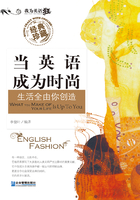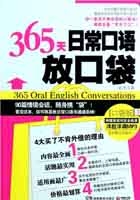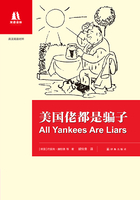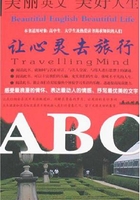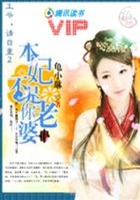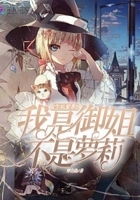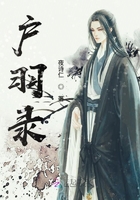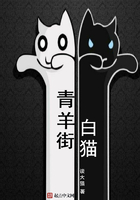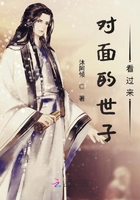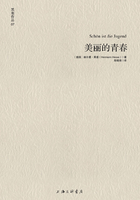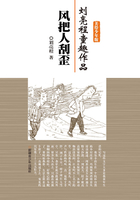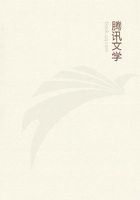Early one morning, the people of Guangzhou woke up to find a banner strung across People's Road, on which was written "The People of South China request in the strongest possible terms that the Yangcheng Evening News be shut down!" The only place Liu Tao and the others could go for support was to Beijing, to seek help from the paper's original supporter, Tao Zhu. A week after the request for an interview had been made, Tao Zhu still had not found time in his schedule to grant them an audience, and they had to rely on fellow newspaper Sports News allowing them to use their canteen. It didn't bode well. They'd come to see Tao Zhu, but it seemed they were the only ones in Beijing who didn't know what was about to happen to him.
As 1967 began, Liu Tao and the other diehard defenders of the Yangcheng Evening News finally got word that Tao Zhu would be receiving Red Guard representatives, and was inviting them to attend as well. On the afternoon of the 3rd of January, they arrived at the auditorium and began to wait. At 3 o'clock, Tao Zhu showed up. Liu was happy to see the old leader, and to hear him talking about something to which he wasn't actually listening very atten-tively. He thought to himself, if Tao is still able to meet with Red Guards, that means he's still on the political scene and can speak in defence of the newspaper. There was still hope! It didn't take long for him to realise that something wasn't right. Firstly there was no podium on the stage; a table had temporarily been placed there for Tao to stand behind, hardly the proper reception for a top leader. Then there was the fact that no-one else was on stage with him; he was alone, as if he was only representing himself.
After he'd spoke for an hour and a half, he was called offstage to answer a telephone call and never came back. The Red Guards waited for over an hour before being told by Tao's people to go home with no further explanation. The next morning at 4 am, a man wandering around outside Tian'anmen Square saw that over-night, posters had been put up all over the square and Chang'an Avenue calling for people to "overthrow the three biggest capitalist-roaders in China, Liu (Shaoqi), Deng (Xiaoping) and Tao (Zhu)!"Their worst fears had come true.
The wind had changed in Beijing. Liu Tao wrote a telegram home about the troubling news. The person behind the counter looked at him with a peculiar stare, as if he'd come to Beijing to launch some conspiracy. Liu was amazed: was the political consciousness of Beijingers really so developed that they could identify him as a "royalist" who supported Tao Zhu? He checked the telegram again; it had been written so as to keep its meaning vague, but then he saw his signature - the characters Liu and Tao were the surnames of two of the "three biggest capitalist-roaders in China"! No wonder he was getting a funny look.
Defeated, Liu Tao and the rest quickly returned to Guang-zhou, only to find out that the game was very much over for the Yangcheng Evening News, the army of supporters who had protected it having long since abandoned the cause and split up into eighteen different rebel factions. One of them had been set up by the paper's art designer, with the sole intention of removing Huang Yongsheng from power. By this time, Huang Yongsheng was a veteran general serving as Lin Biao's chief of staff, and this art designer of the Evening News had decided to rebel against him. Every day he'd go out to post anti-Huang posters, pausing only for a bowl of flour paste when he got hungry. He was so busy he forgot to even pick up his wages - when he was eventually arrested it was discovered that he was owed several months' back pay. After his arrest he went on hunger strike. His jailer threatened to cut his throat if he kept refusing to eat, but refuse he did. It's unknown what happened to him afterwards.
It was in this general atmosphere of chaos that 1968 began. Three papers were folded into one, the Yangcheng Evening News becoming part of the Southern Daily. The brief period of prosperity and development in Guangdong during the latter part of Tao Zhu's time in offce had come to an end with the advent of the Cultural Revolution, and the province's economy again began to decline.
The South China Bureau, where Xie Fei worked, was by this point essentially paralysed, leaving Xie with very little work to do. In public, he was careful to keep his lips tightly sealed - military committees and revolutionary committees had appropriated all the administrative budget and authority of the Party for themselves, leaving Xie Fei and his colleagues under general suspicion for having worked for "the Old system". Everywhere they went they were looked at superciliously and guardedly, all the way through until the South China Bureau itself was offcially disbanded in 1973 and its staff were transferred to work for the various provincial revolutionary committees. In such a diffcult situation, Xie's tactic was to keep his mouth shut and his head down.
In Hong Kong, just across the river, the British government was watching the upheaval of the Cultural Revolution in a sense of smug detachment. What they didn't expect was that once the Cantonese living there learnt what the Cultural Revolution was all about, it quickly made its way across the border. The single-minded focus on challenging authority appealed to them. During the southern Liberation campaign, the army had marched all the way to Luohu Bridge in Shenzhen, then stopped, much to the relief of the British troops there. The Red Guards, however, gave no thought to such niceties, commanding the army to march its way in and form a rebel faction there with Leftist workers, teachers, students, even film stars, and covering the colonial government building with large-character posters. This of course created a serious stir worldwide: the Hong Kong Red Guards were revolting against the old enemy, British imperialism!
As the colonial government moved to suppress them, the Red Guards resisted, using improvised explosives as "landmines", created by converting firecrackers and effective weapons for sowing noise and terror. They had the Hong Kong police on the run and unable to respond effectively. The British gentlemen responded with violence - there were leftists beaten to death, huge numbers of labourers and educators were imprisoned, as well as the head-masters of several famous schools and quite a few film stars. In prison they chanted out Mao's quotations, bravely asserting their willingness to resist the colonial government to the death.
Once news of the suppression spread, there was resistance from the Guangdong side of the border too. Incited by the leftist extremist wave that was seeping China, large numbers of Red Guards and People's soldiers got into conflict with the British troops. The border guards fired a few shots and quickly retreated, pursued all the way by the People's soldiers. This incident terrified the British living in Hong Kong, who could hear the wild threats of the Red Guards being screamed at them. They claimed that they were merely the vanguard, that the army behind them would arrive any minute to liberate the city, and that to do so would only take a single regiment. In Gongbei in Zhuhai Prefecture, just across from Macau, there were likewise clashes between the Chinese soldiers and the Portuguese colonial police. All at once, Guangdong, Hong Kong and Macau were in a state of near-war. Fortunately, Premier Zhou intervened and defused the situation.
Hong Kong's economy took a severe hit during the Cultural Revolution. Many investors took their money out and fled, prop-erty prices dropped, and people began to worry that Hong Kong had reached its apogee, that it would gradually become a "ghost port". It was only the astute, like Li Jiacheng, who saw the oppor-tunity to use the depression to buy up land cheaply and lay sturdy foundations for their own fortunes when time picked up. As the "time of much rejoicing" became an unmitigated disaster, people began to wake up to reality. The temperament of the Cantonese has never left much room for ideology, or for crazes that run away from reality and don't put food on the table. They'd learnt the hard way that noisy political movements are not games, and the impos-sibility of knowing what orders would come down from above, or even who'd be in offce, from one day to the next led them to keep politics at arms' length.
The Cultural Revolution actually increased the number of people fleeing to Hong Kong. The strip of coastal land closest to Hong Kong and Macau was teeming with people looking to make the trip and leaving no possible route untried. These people weren't the same as those who'd fled due to poverty during the "three years of natural disasters"; they also wanted a higher quality of life, but they weren't fleeing because they were hungry. It was more compli-cated than that. One of the reasons the Cantonese got so tired of the Cultural Revolution was the effect of Hong Kong and Macau being so close by.
In the later years of the Cultural Revolution, those in power in Guangdong had a huge amount of work "resist[ing] the influence and inroads of the bourgeoisie", as many of the urban residents were young people, amongst whom a sense of adoration for Hong Kong and Macau was already rather widespread. The effect of friends and relatives in those places and other countries overseas also barely needs mentioning. Even a southerly breeze could set the hearts of Guangdong's people to yearning in a way that's diff-cult to understand today.
Thanks to Zhou Enlai's support, the two annual Guangdong Trade Expos continued throughout the Cultural Revolution. They were as prized by Guangzhou's people as an audience with an emperor would have been, not only because of the dazzling array of products ready for export, but also because of the well-dressed, fashionable, big-spending foreigners as well as Chinese from Hong Kong, Macau and overseas, invited to the expos as guests of honour. The Hong Kong/Macau lifestyle presented a lively alternative to the mainland, showing that even with the same language, the same customs, the same hometown (the most persuasive examples of all were the ones who had fled only recently with just the clothes on their back, but who came to the expos in suits and dresses), there was more than one way for people to live. The household appli-ances, clothes, jewellery, sunglasses, cameras, Marlboro cigarettes, buckets of cooking oil and salted fish that they brought over the Luohu Bridge also proved that capitalism wasn't all bad.
The approval, bordering on envy, that the people of Guang-dong felt for those in Hong Kong and Macau proved to be an asset for the people, rich and poor, who got the Reform movement off the ground. The reason people in the province who were used to simply thinking about their daily necessities could have any under-standing of "modernity" or of catching up with the "Four Small Dragons of Asia" was because they had Hong Kong as an example, right before their eyes. Even once the Cultural Revolution ended, the outward flow of people to Hong Kong and Macau continued to vex the already overburdened Guangdong government.
On the 5th of September 1979, the Guangdong Provincial Public Security Bureau sent a copy of its Report on illegal emigration from the Province which stated:"According to statistics, some 6,709 people were discovered trying to emigrate in August, of whom 1,814 got away, comparable to the figure for July (which historically is an annual peak time). This is a rise of 47%, meaning this year's August has seen more emigrations from more areas than any other since 1962. By region, Huiyang was the worst-affected county with 4,072 cases, of whom 1,400 escaped; 1,112 cases were reported in Guangzhou, of whom 149 escaped, Foshan had 779 cases of whom 238 escaped; the Shantou area had 387 cases, of whom [not present] escaped. In all, Bao'an County had 1,666 cases of whom 917 escaped (it can be seen that areas where the people are more familiar with the crime display a higher success rate); Huiyang County had 1,554 of whom [not present] escaped. Shawan produc-tion brigade, of Huangbu People's Commune in Huidong County, merits special mention. On the 22nd of August there occurred two instances of 21 people openly stealing boats and fleeing, of which one had been arranged and led by the production brigade's leader and deputy leader. From the 3rd of August to the 1st of September, over 300 people who attempted large-scale boat thefts intending to flee were stopped . . ."
In April 1980, the Third Meeting of the Guangdong Province 5th People's Congress revised and released draft Rules and Regu-lations for Special Economic Zones in Guangdong. On the 26th of August, Marshal Ye[4] gave his personal support to the tenth meeting of the Standing Committee of the 5th National People's Congress[5] at which the regulations were clarified by vice-head of the National Imports-Exports Committee Jiang Zemin on behalf of the State Council and passed, and it was also decided to ratify to State Council's proposal to create Special Economic Zones in Shenzhen, Zhuhai and Shantou in Guangdong, as well as Xiamen in Fujian province.
It's interesting to note that as the regulations went from draft to publication, the number of people fleeing to Hong Kong decreased daily. The vast crowds that used to lie in wait around Shenzhen, hiding in the jungle of Wutong Mountain waiting for their chance and who would not be dislodged by dispersal or arrest, simply upped sticks and left. It was immensely satisfying for the leaders of Guangdong and for the border patrol alike. Once the special economic zones were created, the unending mob looking to get across to Hong Kong stopped at Shenzhen. In fact, more and more Hong Kongers came back over the Luohu Bridge to buy property and invest.
注 释
[1]. Also known as the Socialist Education Movement, it targeted perceived re-actionary elements within the Party, seeking to "clean up" politics, the econom-mics, organisations and ideology.
[2]. Taiwan, Hong Kong, Singapore and South Korea.
[3]. A hugely influential philosopher of the Confucian school, who developed Confucian philosophy along a line of thinking which held that human nature is inherently good.
[4]. i.e. Ye Jianying
[5]. Note: the National Congress of the CCP and the National People's Congress are different. The first is (nominally) the highest decision-making body within the Party; the second is (nominally) the highest decision-making body of the state, and as such is also attended by members of the (nominally) independent United Front. Hence why the 5th National People's Congress can happen after the 8th National Congress of the CCP referred to previously.


